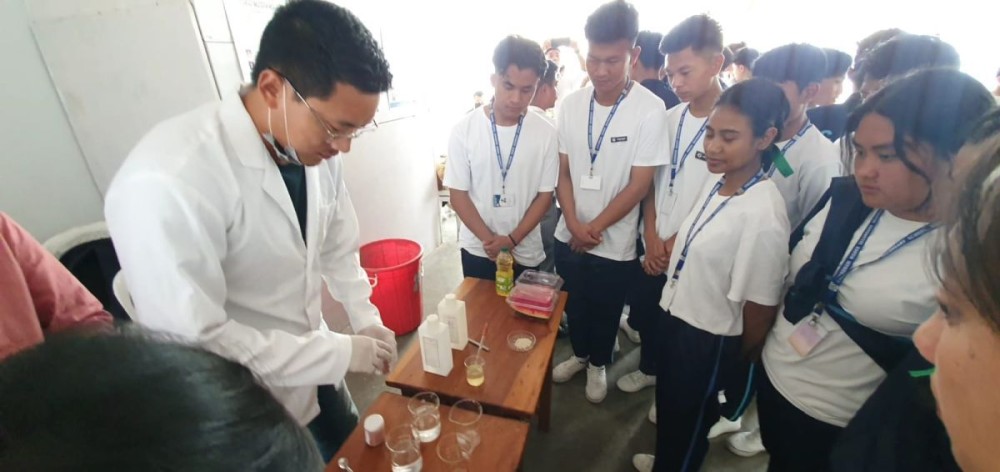Demonstration of common adulterants in foods during the7th World Food Safety Day at Chandmari Higher Secondary School, Kohima on June 9.

Our Correspondent
Kohima | June 9
The Department of Health & Family Welfare, Nagaland marked the 7th World Food Safety Day at Chandmari Higher Secondary School, Kohima, under the global theme “Food Safety: Science in Action” on June 9.
Addressing the gathering, Commissioner & Secretary of Health & Family Welfare, Anoop Khinchi, emphasized that World Food Safety Day—celebrated annually on June 7 since 2019—seeks to spotlight the importance of food safety in human health, food security, and economic growth.
He highlighted the collective responsibility of producers, regulators, and consumers in maintaining hygienic food practices.
“Science is at the heart of food safety,” he stated, noting that research and innovation help identify risks, prevent contamination, and improve food quality. He cited the World Health Organization's estimate that 600 million people fall ill globally each year due to contaminated food, resulting in 420,000 deaths and a loss of 33 million healthy life years.
The program emphasized how technological advancements—such as microbiological analysis, preservation methods, packaging innovations, and modern processing techniques—are crucial in ensuring a safe food supply. The State Public Health Laboratory at Para Medical, Kohima, was mentioned as the designated center for food sample testing under FSSAI standards.
The event also included a consumer education segment detailing best practices for food hygiene, including proper handwashing, temperature control, safe storage, and reading food labels.
Highlighting another pressing health concern, HFW HoD Dr Mereninla Senlem, addressed the rising rates of obesity across India during a special session on the department’s Anti-Obesity Drive. She noted a significant shift towards unhealthy diets, sedentary lifestyles, and increasing cases of non-communicable diseases (NCDs) such as diabetes and hypertension. Citing NFHS-5 data, she said that 24% of Indian women and 23% of men are overweight or obese.
Dr Mereninla also echoed Prime Minister Narendra Modi’s recent call during Mann Ki Baat to address obesity through public awareness and lifestyle changes, such as reducing edible oil consumption.
The Health Department outlined key preventive measures to tackle obesity, including adopting balanced diets, engaging in regular physical activity, managing stress, ensuring adequate sleep, and seeking professional dietary guidance when necessary.
Chaired by CHSS Assistant Teacher Marsenla, the programme commenced with prayer by CHSS Lower Section Supervisor Bendang.
The occasion was also marked by demonstration of common adulterants in foods and also quiz competition on food safety for the students.






